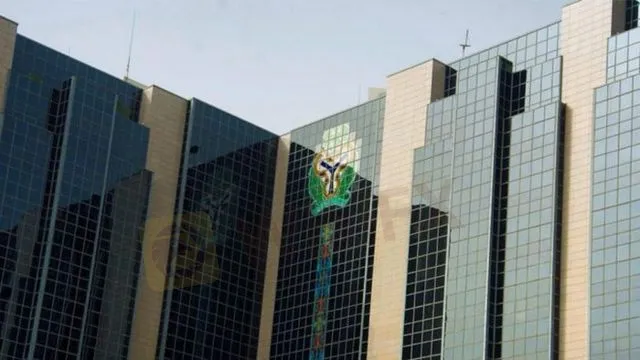简体中文
繁體中文
English
Pусский
日本語
ภาษาไทย
Tiếng Việt
Bahasa Indonesia
Español
हिन्दी
Filippiiniläinen
Français
Deutsch
Português
Türkçe
한국어
العربية
How commodities ecosystem can drive CBN’s FX policy
Abstract:Bankers and other operators in the Nigerian financial market have identified deployment of commodities ecosystem as a means, which the Central Bank of Nigeria (CBN) can achieve the plan to generate up to $200 billion yearly from non-oil exports in the next three to five years through its RT 200 FX policy.

Bankers and other operators in the Nigerian financial market have identified deployment of commodities ecosystem as a means, which the Central Bank of Nigeria (CBN) can achieve the plan to generate up to $200 billion yearly from non-oil exports in the next three to five years through its RT 200 FX policy.
The stakeholders that gathered at a breakfast meeting, hosted by Lagos Commodities and Futures Exchange (LCFE) at the weekend, agreed that effective utilisation of Nigerias commodities ecosystem presents ample opportunity for the apex bank to generate forex through non-oil exports.
In his presentation, the Divisional Head, Agribusiness, Natural Resources and Project Development Heritage Bank, Olugbenga Awe, explained that the Nigerian economy had been well-diversified, going by statistics except for the sources of forex.
Awe, who spoke on ‘The opportunities for financial Institutions in the CBN RT 200 FX’ programme, stated that a commodity exchange was a risk management platform.
According to him, the biggest challenge to the exportation of non-oil products in Nigeria is the ability to meet global standards and demand.
He explained that the Nigerian non-oil products could boost forex earnings if they meet global standards.
This is where commodities exchanges come in. Any product whose electronic receipt is traded on a commodities exchange must be of global standard.
“Banks are willing to support exporters provided they meet certain criteria, including a history of performance, export volume and frequency, payment methods, products sourcing strategy, risk mitigants and seasonality among others.”
Corroborating him, the Managing Director, Agvest Nigeria, Bode Abikoye, noted that commodities prices offer protection from the effects of inflation.
Investing some of your portfolios in commodities is recommended by many experts as it is seen as a diversifier asset class.
Moreover, some commodities tend to be a good hedge against inflation, such as precious metals and energy products.
Investors break down commodities into two categories: hard and soft. Hard commodities require mining or drilling, such as metals like gold, copper, and aluminum, and energy products like crude oil, natural gas, and unleaded gasoline.
Soft commodities refer to things that are grown or ranched, such as corn, wheat, soybeans, and cattle. Commodities tend to bear a low to negative correlation to traditional asset classes like stocks and bonds.
“Supply-and-demand dynamics are the main reason commodity prices change. When there is a big harvest of a certain crop, its price usually goes down, while drought conditions can make prices rise from fears that future supplies will be smaller than expected”, Abikoye said.
The Chief Executive Officer Lotus Capital, Hajara Adeola, who spoke on ‘The Potentials of Non-Interest Financial Instruments to Finance Commodities Ecosystem’, explained that non-interest financial instruments were based on managing businesses on moral principles, stating that they offer many benefits to investors.
In his welcome remark, the Managing Director, LCFE, Akin Akeredolu-Ale explained that a commodities exchange would always come in by catalysing enabling environment, alignment of relevant stakeholders, transparent trading platform, certification and standardisation, data and price discovery, enabling environment for price discovery and regulatory framework.
Disclaimer:
The views in this article only represent the author's personal views, and do not constitute investment advice on this platform. This platform does not guarantee the accuracy, completeness and timeliness of the information in the article, and will not be liable for any loss caused by the use of or reliance on the information in the article.
Read more

New Zealand's FMA Warns Against "YouTube Crypto Investment Scam"
The Financial Markets Authority (FMA), New Zealand's financial regulator, warns individuals against investment scams that use YouTube channels to promote fraudulent cryptocurrency investment firms/websites. The authority explained on its official website how the YouTube cryptocurrency scam works, providing a step-by-step guide to help people recognize and avoid it. Read HOW THE SCAM WORKS and BE SAFE.

How to Know if the Market is Correcting or Reversing?
In trading, distinguishing between a market correction and a market reversal is crucial for making sound decisions. Misjudging one for the other can lead to missed opportunities or significant losses. While both involve price movements, their causes, duration, and implications differ substantially. Understanding these differences can help traders improve their strategies and adapt to market conditions effectively.

Empowering the Next Generation in Finance with WikiFX: Gen Z’s Investment Journey
With a steadfast commitment to fostering sustainable financial literacy and providing clear, strategic guidance to the next generation, WikiFX has collaborated with Van Lang University and Hoa Sen University to host an exclusive series of financial education workshops. This marks a pioneering initiative by WikiFX in Vietnam, designed not only to deliver foundational knowledge but also to instill a sense of responsibility and cultivate prudent financial decision-making among aspiring young traders.

Robinhood Launches Options Trading in the UK by 2025
Robinhood to introduce options trading in the UK by 2025 following FCA approval. Discover how this expansion aligns with Robinhood's strategy for global growth and new features.
WikiFX Broker
Latest News
Two Californians Indicted for $22 Million Crypto and NFT Fraud
Macro Markets: Is It Worth Your Investment?
Trading is an Endless Journey
WikiFX Review: Is Ultima Markets Legit?
Colorado Duo Accused of $8M Investment Fraud Scheme
What Impact Does Japan’s Positive Output Gap Have on the Yen?
RM62k Lost Investment Scam After Joining XRP Community Malaysia on Telegram
Victims of Financial Fraud in France Suffer Annual Losses of at Least €500 Million
Malaysia Pioneers Zakat Payments with Cryptocurrencies
FCA's Warning to Brokers: Don't Ignore!
Currency Calculator


